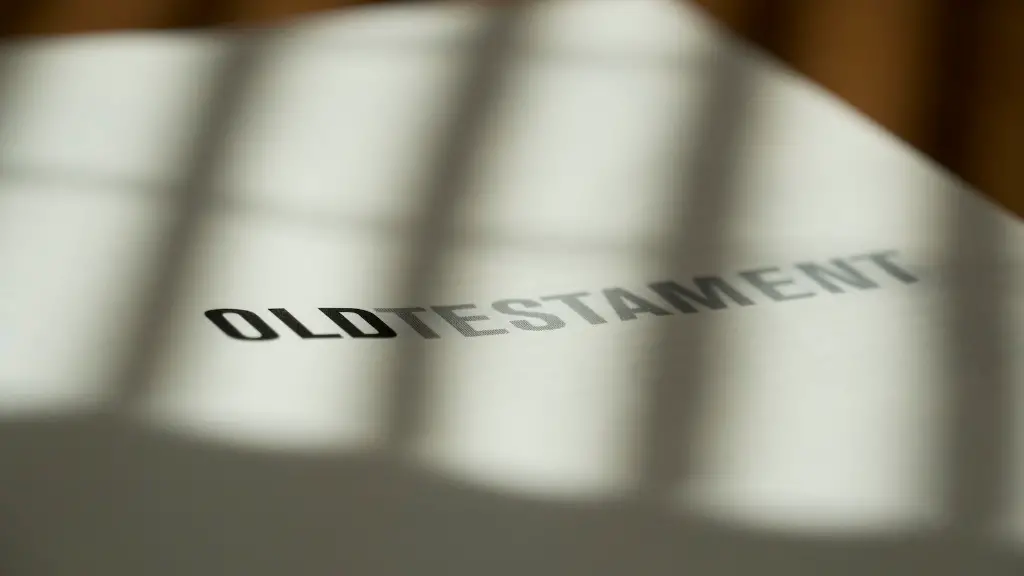What Does Circumcised Mean In The Bible?
The Bible is known to have many profound stories and scriptures. One of the most well-known teachings of the Bible is that of circumcision, which is a widely discussed topic not only in Biblical scripture, but also in contemporary times. Set out in several areas of the Bible, circumcision is an important concept and belief in much of Abrahamic religion.
Circumcision as an act is a surgical procedure in which the male foreskin is removed, partially or completely. In the medical world, it is generally performed for medical reasons, with research showing its benefits for hygienic and health-related advantages. In the Abrahamic religions, the circumcision is seen as an act of covenant, which links the individual to the whole of the religious community.
In the Bible, circumcision is seen in several different ways. In Abrahamic religion, namely Judaism and Islam, circumcision is seen as an essential part of the covenant between the individual and the religious community. Specifically this is seen in the letters of the law, for example Exodus 12:44-45. Additionally, it is also a sign of belonging to the Abrahamic faith, as God asked all righteous people to be circumcised as a sign of their covenant with Him.
For Christians, circumcision is seen as a sign of obedience to God, as it is commanded in the Bible. Though historically it was a physical act as described above, it is now more commonly seen and celebrated as a spiritual act. When a Christian is circumcised, they are declaring to the world their commitment to God, and their allegiance to Him.
One of the cross-cultural effects of circumcision is that those who are circumcised often form a common bond with one another. As circumcision makes an individual part of the community, the ritual serves to connect the believers to one another, with a common bond that transcends tribe and culture. As such, it can provide a source of solidarity and camaraderie.
Additionally, circumcision can be a sign of holiness and a way of forging a closer relationship to God. This is seen in the stories of King David and Abraham, and it is seen in modern time, in the daily practices of some believers. In this way, circumcision can serve as an initiation rites for many, as it marks an individual’s faith and dedication to their faith.
In conclusion, circumcision holds a special place in the Bible, as it is seen as a sign of covenant with God and the religious community. It is seen as an act of obedience and commitment, with cross-cultural connections in the formation of a shared religious identity.
Connection to Spiritual Holiness
Circumcision is often seen as a sign of holiness and spiritual renewal. The idea of circumcision as a spiritual act, rather than a physical one, is seen in ancient scriptures, particularly within the Abrahamic faith, where it is seen as a sign of obedience and commitment to the will of God.
In Judaism, this holiness is seen within the Talmud and Torah, which state that circumcision is an important act of spiritual renewal, in which a man can be made holy. Similarly, in Islam, circumcision is seen as a way of purifying body and soul, as a sign of dedication to God.
Circumcision as a spiritual act is seen not only in the ancient scriptures, but also in modern-day practices of faith. Many believers choose to perform the ritual for spiritual, rather than health-related, reasons. This ritual can form part of a spiritual renewal, with the individual swearing allegiance to their faith and God.
In many cases, circumcision is associated with a deep spiritual connection, where it is seen as a sign of spiritual rebirth and a demonstration of the individual’s dedication to the faith. This connection is often further strengthened with strong cultural associations, in which the individual is bound to the religion and its values.
The spiritual holiness associated with circumcision can be seen in the everyday practices of many believers, where it forms a physical representation of their commitment to the faith and their loyalty to God. In this way, circumcision carries an immense spiritual power, and can continue to shape the spiritual lives of many people.
The Health Benefits
Though its primary purpose is spiritual, circumcision also holds strong health benefits. Research has shown that circumcised individuals are less likely to acquire sexually transmitted diseases, due to the protective action that the foreskin performs. Additionally, circumcisions can also reduce the risk of urinary infection and other medical issues.
Research has also shown that circumcision can reduce the risk of cancer, with some studies pointing to an 84% lower risk for adult men. These results are often due to the fact that circumcision reduces the risk of contraction of the HPV virus, which is known to contribute to many forms of cancer. As such, the protective benefits of circumcision are not just spiritual, but physical as well.
Moreover, the risk of HIV and other sexually transmitted diseases is significantly reduced in circumcised individuals. In particular, many studies have documented a 60% reduction in the risk of HIV transmission among circumcised men, highlighting the potential of circumcision in reducing the risk of infection.
In conclusion, circumcision is not only beneficial spiritually, but also scientifically. By reducing the risk of sexually transmitted diseases, cancer and HIV, circumcision holds strong protective benefits that many can benefit from.
Modern Culture and Circumcision
In modern times, circumcision has become commonplace and is seen in many areas of life. In many cases, it is seen as a normal medical procedure, and is often performed for medical and health-related reasons, rather than for religious or spiritual purposes.
Due to the medical benefits and risk-reduction associated with the act, many hospitals and doctors now perform the procedure without requiring any religious connotation. In Western countries, the decision of whether to circumcise is often based on the parents’ personal opinion and not guided by religion.
In other areas of the world, circumcision is often still seen as a spiritual act, and can form part of initiation rites and religious ceremonies. In some parts of Africa and the Middle East, circumcision is seen as a way of strengthening the individual’s connection to the faith, and is an important part of the religious and cultural practices of many communities.
Modern culture has also seen a rise in popularization of the procedure, with medical research and technological advances making it a more viable and attractive option for some. Circumcision surgeries can now take place quickly and relatively painlessly in hospitals, with individuals able to receive fast and effective treatment.
Additionally, many modern cultures have seen a shift in attitude towards the act, with some cultures now listing it as an optional choice, or even a voluntary decision. This can often be an empowering choice for those looking to strengthen their spiritual and religious connection, or simply to take advantage of the medical benefits.
In conclusion, modern culture has seen a lot of change in relation to circumcision, with it becoming a more widely accepted and understood procedure. For many, it is seen as an optional decision, or even an empowering choice, and can provide many opportunities for spiritual and physical healing.
Modern Attitudes Towards Circumcision
Modern attitudes towards circumcision have seen a great deal of change. In many parts of the world, this is largely due the increasing medical benefits associated with the procedure, and the widespread understanding of its advantages. This has changed attitudes towards the procedure, with many now viewing it in a much more positive light.
Moreover, research has also changed attitudes towards the act, with some societies now removed the stigma that was once associated with it. Circumcision is now seen as a personal choice, with individuals able to make their own decisions based on their beliefs and needs. This has allowed the spread of knowledge of the procedure, and a growing understanding of its potential benefits.
Additionally, modern culture has made the procedure much more accessible. With advancements in medical technology, circumcisions can now be performed quickly and easily in the clinic. This has made the lifetime decision of circumcision much more open to discussion and debate, with individuals now being able to make well-informed decisions.
Lastly, changing attitudes have highlighted the importance of the spiritual aspect of circumcision. For many believers, the act can still be seen as a way of dedicating oneself to the faith and strengthen floyalties to God. In this sense, it has formed a more integral part of faith and religion, with many now viewing it as an important act of devotion.
In conclusion, modern attitude towards circumcision has changed for the better, with individuals now viewing it as more than just a medical procedure. In this way, the procedure has become more open and accessible, and has allowed many individuals to make a more informed decision about their faith.





